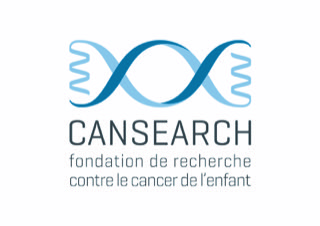i) Mechanistic and Therapeutic Approaches in Pediatric Acute Myeloid Leukemia with CBFA2T3-GLIS2 Fusion Transcript
Acute megakaryoblastic leukemias (AML-M7) represent a rare subtype of leukemia most frequently diagnosed in children. They can arise due to genetic predisposition, such as trisomy 21, in which case the prognosis is favorable, or be diagnosed de novo, with a poorer prognosis. In patients with de novo AML-M7, cytogenetic and genomic analyses have shown, in the majority of cases, the presence of chromosomal alterations leading to the expression of a fusion oncogene.
The most frequently described genetic alteration is the fusion between the CBFA2T3 and GLIS2 genes, with an incidence of 18 to 27% according to publications. It results from an inversion of chromosome 16 leading to a fusion protein.
This subtype is associated with a particularly unfavorable prognosis, with a 5-year overall survival and event-free survival of 14% and 8%, respectively. Patients with this fusion rarely have associated mutations, particularly those with poor prognosis. Consequently, they are managed within a standard treatment group despite their significantly inferior prognosis, and the presence of the fusion is associated with strong chemoresistance.
Mechanistically, both CBFA2T3 and GLIS2 being transcriptional regulators, the presence of the fusion deregulates the expression of numerous genes, including those encoding heptad complex proteins, resulting in blocked differentiation and increased cellular self-renewal.
Results obtained:
Preliminary work by Dr. Fanny Gonzales at the Dana Farber Cancer Institute (USA) has highlighted the crucial importance of the genes involved in the fusion in leukemogenesis. Specifically, it has been demonstrated that knockout of these genes or specific degradation of the fusion protein leads to cellular differentiation, thus opening up new therapeutic perspectives. However, effectively targeting a specific fusion protein represents a significant challenge.
Future objectives:
To enable the clinical translation of these discoveries, Dr. Gonzales, who joined the CANSEARCH research platform in October 2023, is seeking to decipher the specific roles of the genes involved in the differentiation process. This in-depth understanding of the underlying mechanisms will allow us to better target these genes for precise therapeutic interventions.
